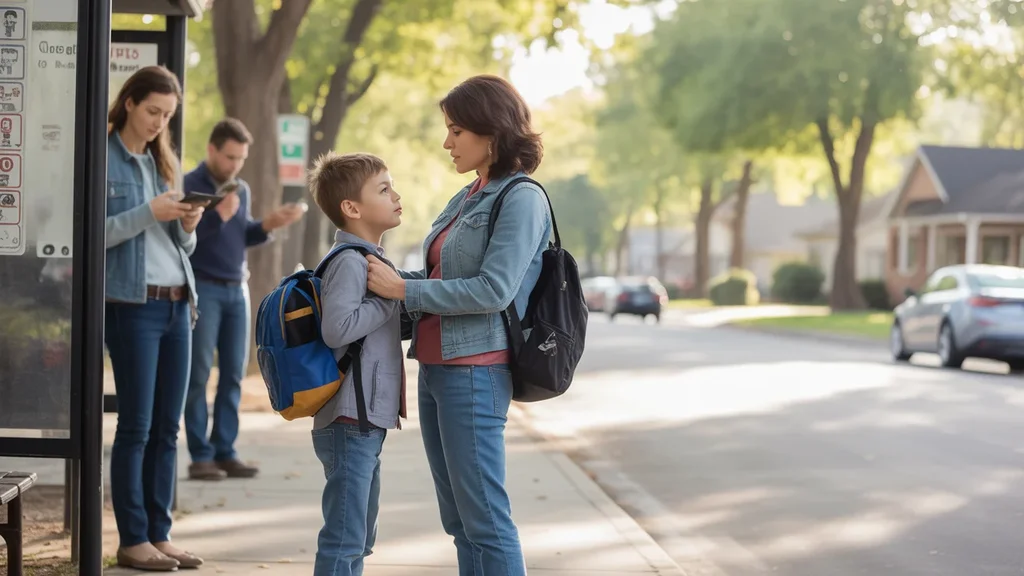What You’ll Spend on Transit in Commerce City
For those considering their transportation options, public transportation costs in Commerce City are an important factor. As of 2025, a standard one-way bus fare in the city runs about $2.50. A 30-day bus pass in Commerce City typically costs $99. Light rail fares are slightly higher, averaging $3.00 per ride or $114 for a monthly pass.
While these prices are on par with many midsize U.S. cities, it’s helpful to break down the numbers further to see how transit fits into your budget. Factors like your commuting frequency, car ownership costs, and parking fees can all impact whether public transportation makes financial sense in Commerce City.
Transit Options Available

Commerce City residents have access to several public transportation modes through the Regional Transportation District (RTD), including:
- Local and express buses with service to Denver
- Light rail trains connecting to the greater Denver metro
- Commuter rail to Denver International Airport and Union Station
- Access-a-Ride services for those with disabilities
RTD’s light rail R Line is a key route for commuters, running from Lincoln Station in the south through Aurora and up to Peoria Station in Commerce City. Local buses like the 88, 104, and 112 connect Commerce City neighborhoods to the light rail and commuter rail stations for access to the larger transit network.
Monthly Cost Breakdown
To better understand how public transportation costs add up, let’s look at some common commuting scenarios in Commerce City:
| Commuter Type | Commute Frequency | Estimated Monthly Cost |
|---|---|---|
| Weekday rider | 5 days/week | $99 (local monthly pass) |
| Weekend traveler | 8 trips/month | $20 (8 one-way fares) |
| Daily commuter | 7 days/week | $114 (regional monthly pass) |
For most weekday commuters, 🏆 Winner: a $99 local monthly pass offers the best value. Infrequent riders and weekend travelers can likely get by with one-way fares, while those commuting daily may need to step up to the $114 regional pass for fuller access.
Is Public Transit Worth It in Commerce City?
The average commute time by bus in Commerce City is around 35 minutes, compared to 24 minutes driving solo. For some, the extra time is well worth the $99/month savings over car ownership costs, which can easily top $500/month once you factor in loan payments, insurance, gas, maintenance, and parking.
However, Commerce City is still a fairly car-dependent area. Buses and trains run less frequently off-peak, and some neighborhoods lack easy access to transit stops. For those with longer commutes or less flexible schedules, driving may prove more convenient even with the higher cost.
Ways to Save on Transit
Residents looking to keep their public transportation costs low in Commerce City have a few options:
- Seniors 65+, individuals with disabilities, and Medicare recipients are eligible for reduced fares
- Students at participating local colleges can purchase CollegePass for unlimited rides each semester
- Employers who participate in the EcoPass program can offer free or subsidized passes to staff
- Commuter tax benefits allow using pre-tax dollars for transit, reducing your taxable income
FAQs
What is the cheapest way to get around Commerce City?
For those traveling 4 days per week or less, individual one-way bus fares ($2.50) are likely the most economical option. More frequent riders will find better value in a monthly local pass ($99).
Are there monthly transit passes in Commerce City?
Yes, RTD offers several monthly pass options. The $99 Local pass covers buses and trains within the Denver metro area, while the $114 Regional pass extends to all RTD service, including the airport.
Is public transit reliable for work commutes?
RTD prides itself on operating over 90% on-time. However, Commerce City is a lower-density area, so bus and train frequency may be limited outside of peak commuting hours. Those with 9-to-5 schedules will find transit more reliable than shift workers or those with non-traditional hours.
Getting Around Smarter in Commerce City
For many Commerce City residents, public transportation can be an affordable, eco-friendly alternative to driving. However, the choice between transit and car ownership is highly personal, depending on your budget, commute, and lifestyle. Those considering the switch should weigh the monthly costs of each mode, along with less tangible factors like convenience and environmental impact.
By understanding the full picture of public transportation costs in Commerce City, residents can make informed decisions about how to get around. Whether you opt for a monthly pass or pay per ride, public transit can be a smart financial choice for those looking to reduce their reliance on cars in the suburbs.
